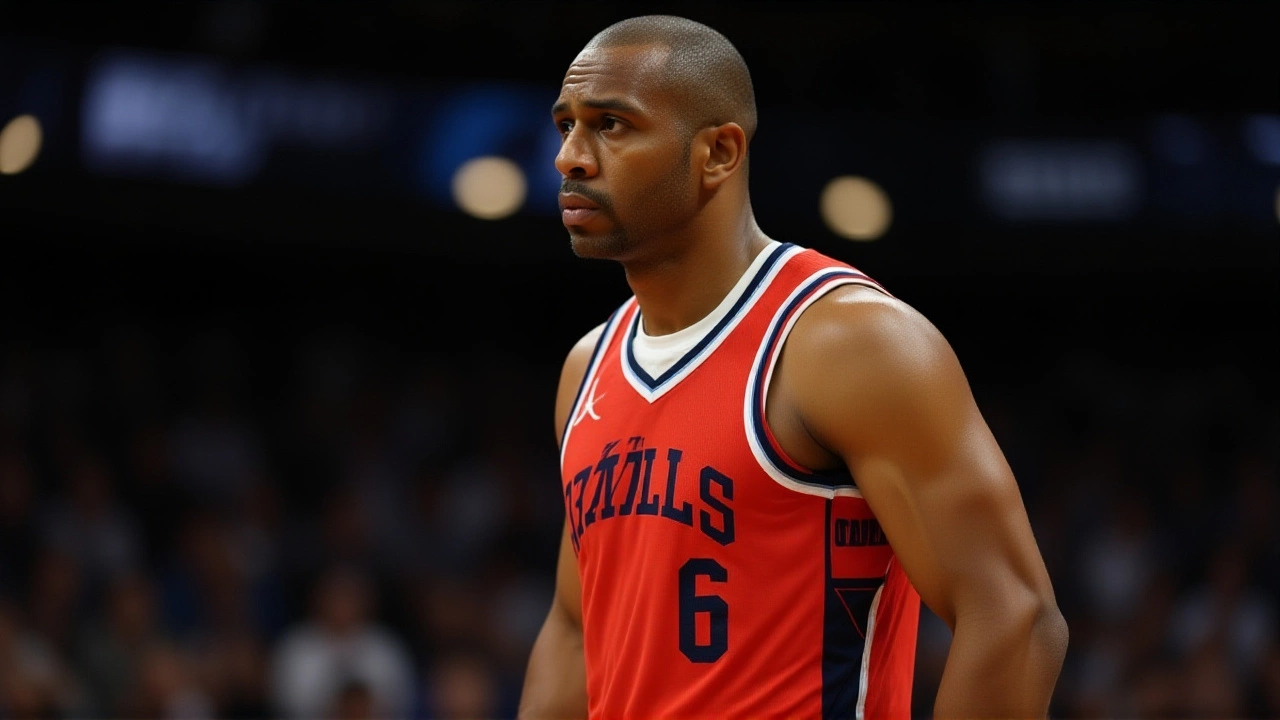
At 40 years old, after two decades of precision passing, clutch leadership, and quiet dominance, Chris Paul has decided to hang up his sneakers. The announcement, made public on the 2025-2026 NBA season’s early stretch, came via a CBS Sports HQ video on November 22, 2025, confirming Paul will step away from professional basketball at the season’s end. The news didn’t just ripple through the league—it sent a tremor through the hearts of fans who’ve watched him redefine the point guard position for a generation. He’s not chasing rings anymore. He’s chasing closure.
A Career That Defied Expectations
Chris Paul was never supposed to be this durable. At 6’0”, with a frame built for agility, not brute force, he entered the league in 2005 as the fourth overall pick by the New Orleans Hornets. Back then, skeptics questioned whether he could survive the physical grind of the NBA. He didn’t just survive—he thrived. Nine All-Star selections between 2008 and 2016. Ten All-NBA teams. Eight All-Defensive teams. A career average of 11.1 assists per game, second only to John Stockton in NBA history. He’s the engine behind franchises, the guy who makes everyone better. And yet, he’s never won a championship.That absence doesn’t diminish him. If anything, it elevates his legacy. He’s the ultimate team builder—the kind of player whose presence turns contenders into champions. He led the Los Angeles Clippers to five consecutive playoff appearances. He turned the Phoenix Suns into Western Conference finals threats. And now, in his final season, he’s back with the Clippers at the Intuit Dome in Inglewood, California, mentoring young stars like Kawhi Leonard and helping the team navigate a transitional era.
The Announcement: Quiet, But Earth-Shaking
The report from CBS Sports HQ didn’t come with a press conference or a tearful press release. It was a 90-second segment on YouTube, live from their New York studio at 51 West 52nd Street. Analyst Ashley Nicole Moss spoke with the kind of reverence usually reserved for legends who’ve already left the game. “We’ll have some season officially to do that certainly in the Association,” she said, referring to the league’s planned tributes. That phrase—deliberate, almost poetic—hinted at something bigger: the NBA isn’t just letting Paul go. It’s preparing to honor him.
He’s not retiring because he’s burned out. He’s not retiring because he’s injured. He’s retiring because he knows his body can’t keep up with his mind. “So he is the old school in the modern NBA,” Moss noted, paraphrasing Paul’s own philosophy. “The hurry, keep I say has exceeded the ring, also has exceeded the position.” Translation: He didn’t need a title to prove his greatness. He exceeded the role. He redefined it.
What This Means for the NBA
Paul’s departure leaves a void no one else can fill. The modern NBA is full of high-flying scorers and volume shooters. But Paul was the last true floor general—the kind who controlled tempo, called out defenses, and made teammates feel like stars. His leadership was silent but seismic. Teams like the Denver Nuggets and Milwaukee Bucks have young point guards rising, but none carry the same weight of experience.
The league, sensing the historic nature of this moment, is expected to roll out a season-long tribute. Think: special jerseys, pregame video packages, and a final home game ceremony in every arena he’s played in. The NBA has done this before—for Kobe Bryant, for Dirk Nowitzki, for Tim Duncan. But Paul’s case is different. He never won the ultimate prize. And yet, fans everywhere will stand and cheer anyway.
The Ripple Effect
For younger players, Paul’s retirement is a lesson in longevity. He played 20 seasons by mastering recovery, nutrition, and mental discipline—not just talent. He was known for his pregame routines, his film study, his insistence on being the first in and last out of the gym. His career is a blueprint for how to extend your prime.
For the Clippers, it’s a turning point. They’ve built their identity around Paul’s leadership since 2023. Now, they must transition from a team led by a veteran to one led by its next generation. Who will call the plays? Who will hold teammates accountable? Who will be the quiet voice in the locker room that makes everyone better?
And for fans? It’s bittersweet. We watched him turn the Clippers from laughingstocks into contenders. We saw him carry the Suns to the 2021 Finals. We cheered when he outplayed LeBron in the 2020 bubble. We held our breath every time he drove to the rim, knowing he might not come out unscathed. And now, we get to say goodbye—with a full season to do it.
What’s Next?
The final game of the 2025-2026 season is expected in mid-April 2026. The playoffs, if the Clippers qualify, could extend into June. Paul has not indicated whether he’ll pursue coaching, broadcasting, or front-office roles. But one thing is certain: his influence won’t fade. The way he reads defenses, the timing of his no-look passes, the way he commands respect without raising his voice—those are now part of the NBA’s DNA.
His jersey number, 3, will likely be retired by the Clippers, the Hornets, and possibly the Suns. A Hall of Fame induction in 2031 is all but guaranteed. But long before that, the league will give him what he never won on the court: a standing ovation across 30 arenas.
Frequently Asked Questions
How does Chris Paul’s retirement affect the Los Angeles Clippers’ future?
The Clippers lose not just a playmaker, but their emotional anchor. Paul’s leadership helped stabilize the team during turbulent years, and his presence elevated younger players like Kawhi Leonard and Paul George. Without him, the team will need to rely more on coaching systems and emerging talent, particularly rookie guards. His departure marks the end of an era—the Clippers’ most successful stretch since relocating from Buffalo in 1978.
Why didn’t Chris Paul win an NBA championship despite his success?
Paul’s career was defined by timing and circumstance. In 2015, the Clippers lost to the Rockets in the second round despite having home-court advantage. In 2021, the Suns lost Game 6 of the Finals to the Bucks after leading the series 2-0. Injuries, bad bounces, and elite competition—especially from LeBron James and Stephen Curry—kept him from the title. But his impact transcends rings. He’s the most successful player in NBA history to never win one, and that makes his legacy more compelling, not less.
What records does Chris Paul hold?
Chris Paul ranks second all-time in career assists (12,413 as of 2025) and steals (2,542), behind only John Stockton and Jason Kidd, respectively. He’s the only player in NBA history with over 11,000 assists and 2,500 steals. He also holds the record for most consecutive games with a steal (127) and the most All-NBA selections (10) without a championship. His 9 All-Star appearances in a 9-year span (2008–2016) is tied for the most consecutive in NBA history.
How will the NBA honor Chris Paul during his final season?
The NBA is expected to launch a season-long tribute, similar to what it did for Kobe Bryant in 2020. Expect special court designs, video montages before games, and a final ceremonial game in each city where Paul played. The league may also present him with a custom trophy or plaque during the All-Star Weekend in February 2026. Fans in every arena will likely be encouraged to wear #3 jerseys, and the league may retire his number league-wide—an unprecedented gesture for a player without a title.
Is Chris Paul likely to join the Hall of Fame?
Absolutely. With nine All-Star selections, 10 All-NBA teams, eight All-Defensive teams, and his all-time top-five ranking in assists and steals, Paul is a first-ballot lock. His impact on the game—how he revived the traditional point guard role in the modern era—is unmatched. He’ll be enshrined in Springfield in 2031, likely alongside other greats like Kevin Garnett and Dwyane Wade. The Hall doesn’t just reward rings—it rewards legacy.
What does Chris Paul’s retirement say about the evolution of the point guard position?
Paul represents the last great pure point guard—the type who prioritized control over scoring, vision over athleticism. Today’s guards like Ja Morant and Tyrese Haliburton are more explosive, but few possess his basketball IQ or defensive discipline. His retirement signals the end of an era where the point guard was the conductor, not just a scorer. The game is moving toward hybrid roles, making Paul’s style increasingly rare—and his legacy more vital to remember.
